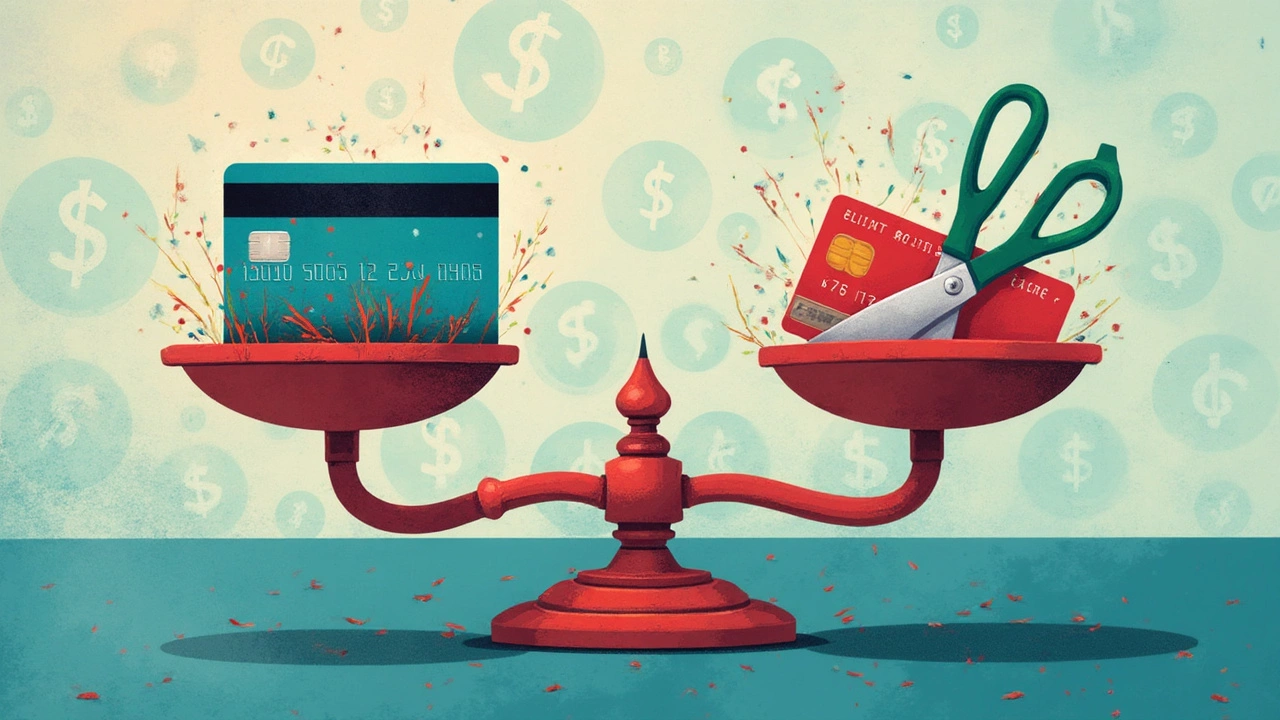Not Using Credit Card: Practical Tips to Keep Your Finances Healthy
If you’re fed up with high interest, late fees, or just want to simplify your money, ditching the credit card can feel like a fresh start. It doesn’t mean you’re bad with money – it means you’ve decided to avoid the traps that many cards set up. Below are real‑world steps you can take today to stay in control without any plastic.
1. Go Cash‑First With the Envelope System
Grab a few envelopes, label them with your main spending categories – groceries, transport, entertainment, and “fun.” Put the amount you’re willing to spend for the month in each envelope. When the cash is gone, you stop buying in that category. It’s visual, it’s tactile, and it forces you to think before you spend.
The envelope method works because you can’t swipe your way past the limit. If you end up with extra cash at the end of the month, roll it over or treat yourself – either way, you’ll see exactly where your money went.
2. Use a Debit Card Linked to a Separate Account
Debit cards don’t carry interest, but they can still lead to overspending if the account is your main checking. Create a dedicated “budget account” that you fund weekly or bi‑weekly. Your debit card only draws from that account, so once the balance hits zero, you’re forced to pause.
This setup mimics the envelope system but with digital convenience. You’ll still get the safety of a PIN and can track transactions online, making it easier to spot patterns.
3. Try Prepaid Cards for One‑Off Purchases
When you need to buy something online or rent a car, a prepaid card can be a good bridge. Load it with a set amount, use it like a regular card, and when the balance runs out, the transaction is declined. No credit check, no interest, and you stay within a self‑imposed limit.
4. Keep an Emergency Fund Separate
One reason people cling to credit cards is the fear of an unexpected bill. Build a small emergency stash – aim for at least £500 to start. Keep it in a high‑interest savings account that you don’t tap into unless it’s a true emergency. Knowing you have a cushion reduces the urge to rely on credit.
5. Build Credit Without a Card
Skipping credit cards doesn’t mean you can’t have a good credit score. Here are a few ways:
- Pay utility, phone, and streaming bills on time – some services report to credit bureaus.
- Take out a small personal loan or a credit‑builder product and repay it in full each month.
- Stay on a partner’s or family member’s account as an authorized user if they have good habits.
These approaches show lenders you can handle debt responsibly without ever holding a revolving balance.
6. Track Everything in a Simple App
Even if you’re using cash, recording what you spend helps you spot leaks. Apps like MoneyDashboard or YNAB (You Need A Budget) let you enter cash expenses manually. When you see a pattern – say, “I’m spending £80 on take‑away each week” – you can adjust your envelope amounts or find cheaper alternatives.
7. Set Clear Goals and Reward Yourself
Decide why you’re avoiding credit cards: lower debt, less stress, or a larger savings goal. Write the goal down, track progress, and treat yourself when you hit milestones – maybe a cheap movie night or a modest dinner out. The reward reinforces the new habit.
Living without a credit card isn’t about depriving yourself; it’s about gaining clarity over your money. By using cash, a separate debit account, prepaid cards, and simple tracking tools, you’ll avoid interest traps while still enjoying the things you need. Give these steps a try for a month, and you’ll probably wonder why you ever relied on credit in the first place.

